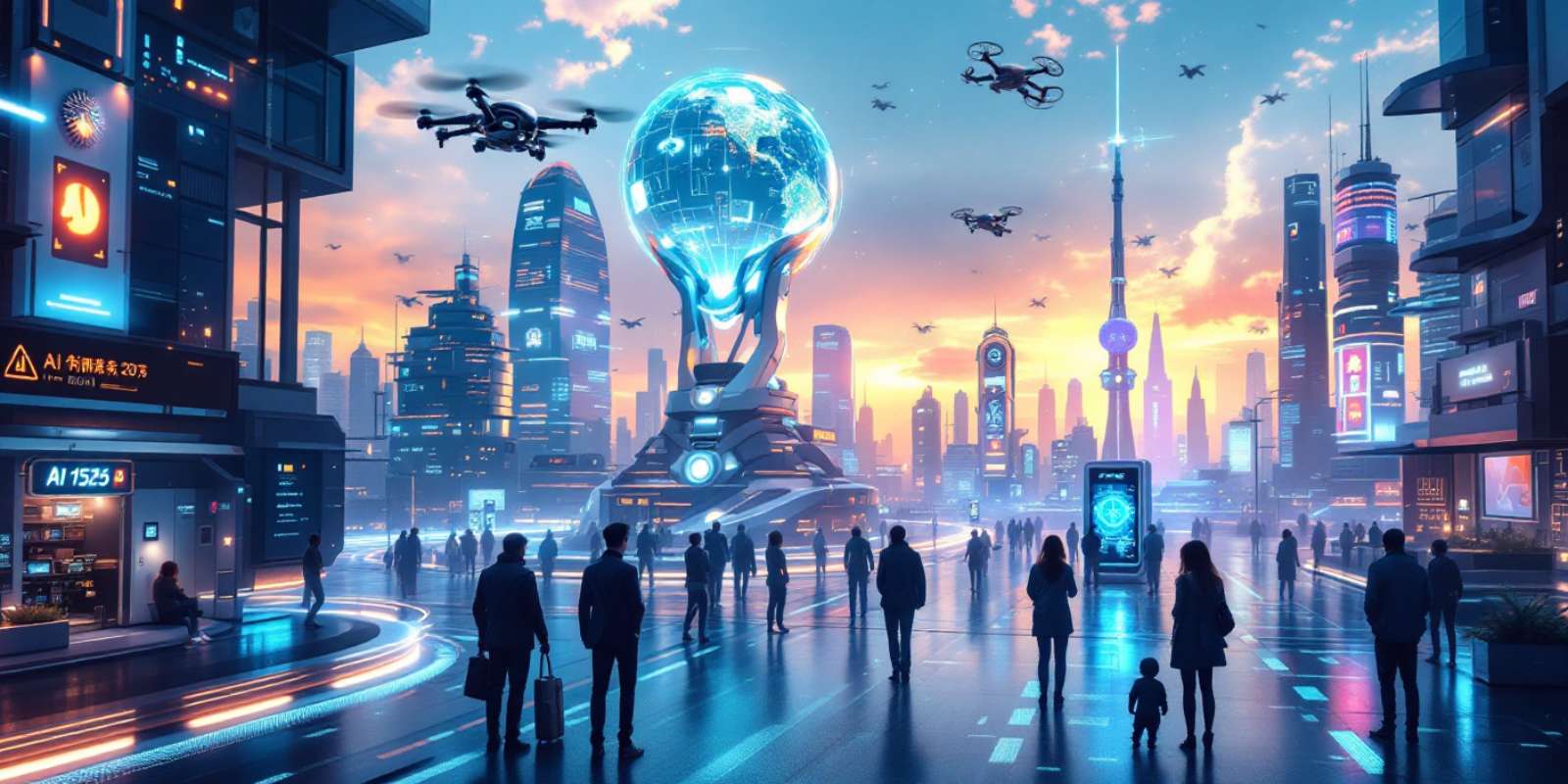The Evolution of Generative AI Models
The world of technology continues to evolve at an incredible pace, with artificial intelligence (AI) at the forefront of transformative change. As 2025 approaches, AI is set to become an even more integral part of our daily lives, impacting industries, economies, and societies worldwide. This article explores the most significant developments and trends in AI that we can expect by 2025.
Generative AI has rapidly advanced, becoming a cornerstone of innovation. By 2025, these models will achieve unparalleled sophistication, allowing them to generate highly realistic images, text, and even video. This progress will revolutionize industries such as entertainment, education, and business. Companies are already leveraging generative AI to improve efficiency, but the future holds even greater potential for technology to drive creative solutions.
AI in Healthcare: A New Era of Innovation
In healthcare, AI is expected to play a transformative role by 2025. From predictive analytics to AI-driven drug discovery, the integration of advanced AI tools will enhance diagnostics and treatment outcomes. AI-powered robots may even assist in surgeries, providing precision and reducing recovery times. This illustrates how technology can dramatically improve healthcare delivery and patient experiences.
Ethical AI: Addressing Bias and Fairness
As AI becomes more prevalent, ensuring ethical practices in its development and deployment is critical. By 2025, significant strides will be made toward eliminating bias and promoting fairness in AI algorithms. Transparent development practices and robust governance frameworks will help build trust in AI systems. Ethical considerations are essential to harnessing the power of technology responsibly.
AI and the Workforce: Opportunities and Challenges
Automation driven by AI will continue to reshape the workforce landscape. While some jobs will become obsolete, new opportunities will arise in fields like AI development, maintenance, and oversight. By 2025, adapting to these changes will require upskilling initiatives and collaborative efforts between governments and the technology sector to prepare the global workforce for an AI-driven economy.
AI in Climate Action
AI is emerging as a powerful tool in the fight against climate change. By 2025, we can expect AI to optimize energy usage, manage resources more efficiently, and develop innovative solutions for reducing carbon emissions. With its ability to analyze vast amounts of data, AI will enable actionable insights for creating a more sustainable future. This demonstrates how technology can address one of humanity’s most pressing challenges.
Personalization Through AI
The demand for personalized experiences continues to grow, and AI is leading the charge. By analyzing user data, AI can tailor recommendations, advertisements, and services to individual preferences. By 2025, AI-driven personalization will redefine industries such as retail, education, and entertainment, further integrating technology into our everyday lives and enhancing user satisfaction.
Securing AI Systems: Overcoming Vulnerabilities
The increasing reliance on AI brings with it significant cybersecurity risks. By 2025, the need to safeguard AI systems from hacking and misuse will be paramount. Developing robust security protocols and monitoring mechanisms will ensure the safe deployment of AI. This highlights the critical role of technology in maintaining the integrity of digital systems in an AI-driven world.
The Role of AI in Education
AI is poised to transform education by providing personalized learning experiences and enabling virtual classrooms. By 2025, adaptive learning platforms will cater to individual student needs, enhancing their understanding and retention of material. AI-powered tools will also assist educators by automating administrative tasks, allowing them to focus more on teaching. The integration of AI into education demonstrates how technology can empower learners and educators alike.
Conclusion
AI in 2025 is set to redefine how we live and work, driving significant changes across multiple sectors. From healthcare and climate action to personalized experiences and education, the advancements in technology will unlock unprecedented opportunities. However, challenges such as ethical concerns, workforce adaptation, and cybersecurity must be addressed to fully realize AI’s potential. The future of AI lies in collaboration between innovators, industries, and policymakers to ensure its benefits are shared equitably and responsibly.



